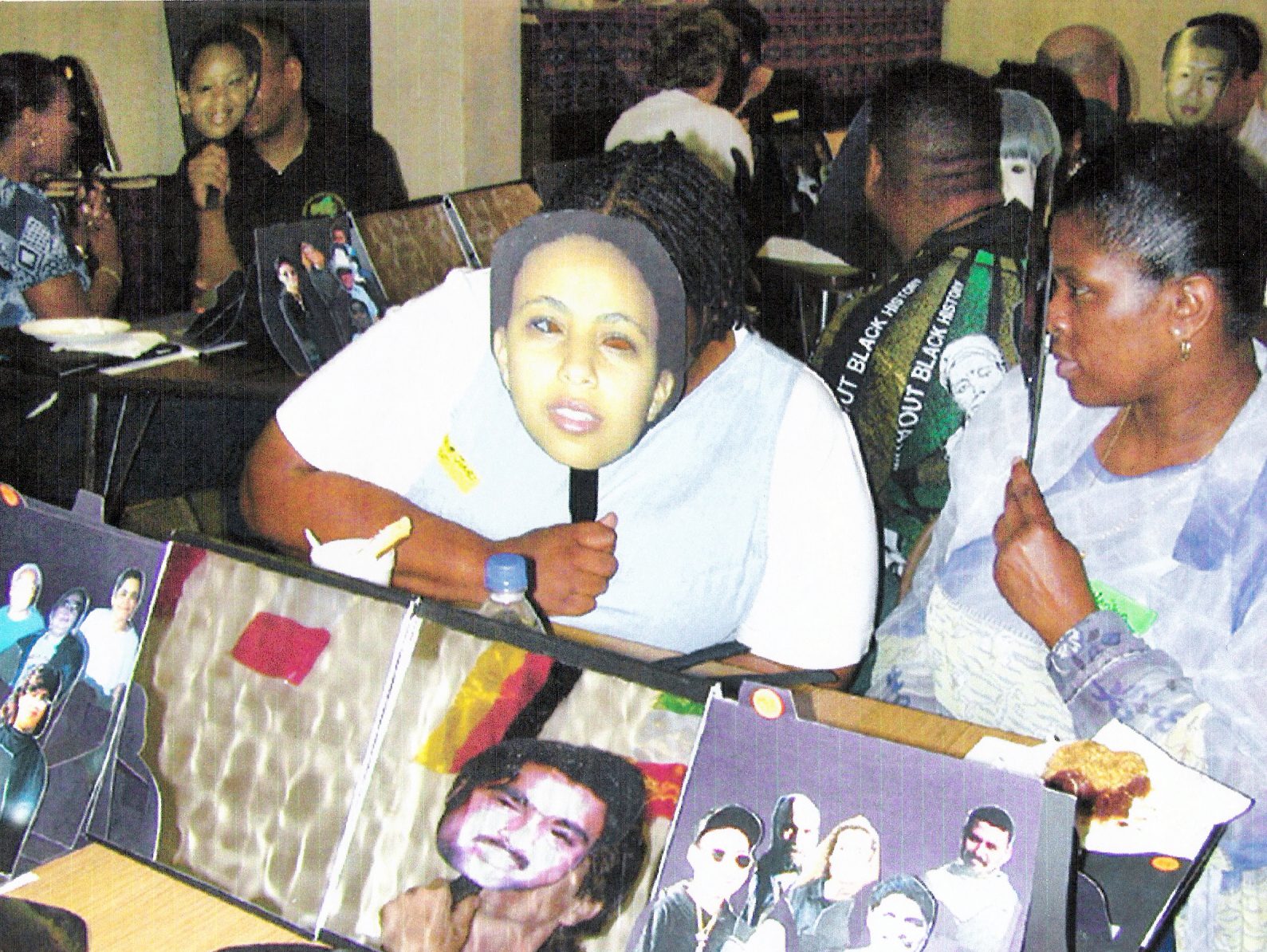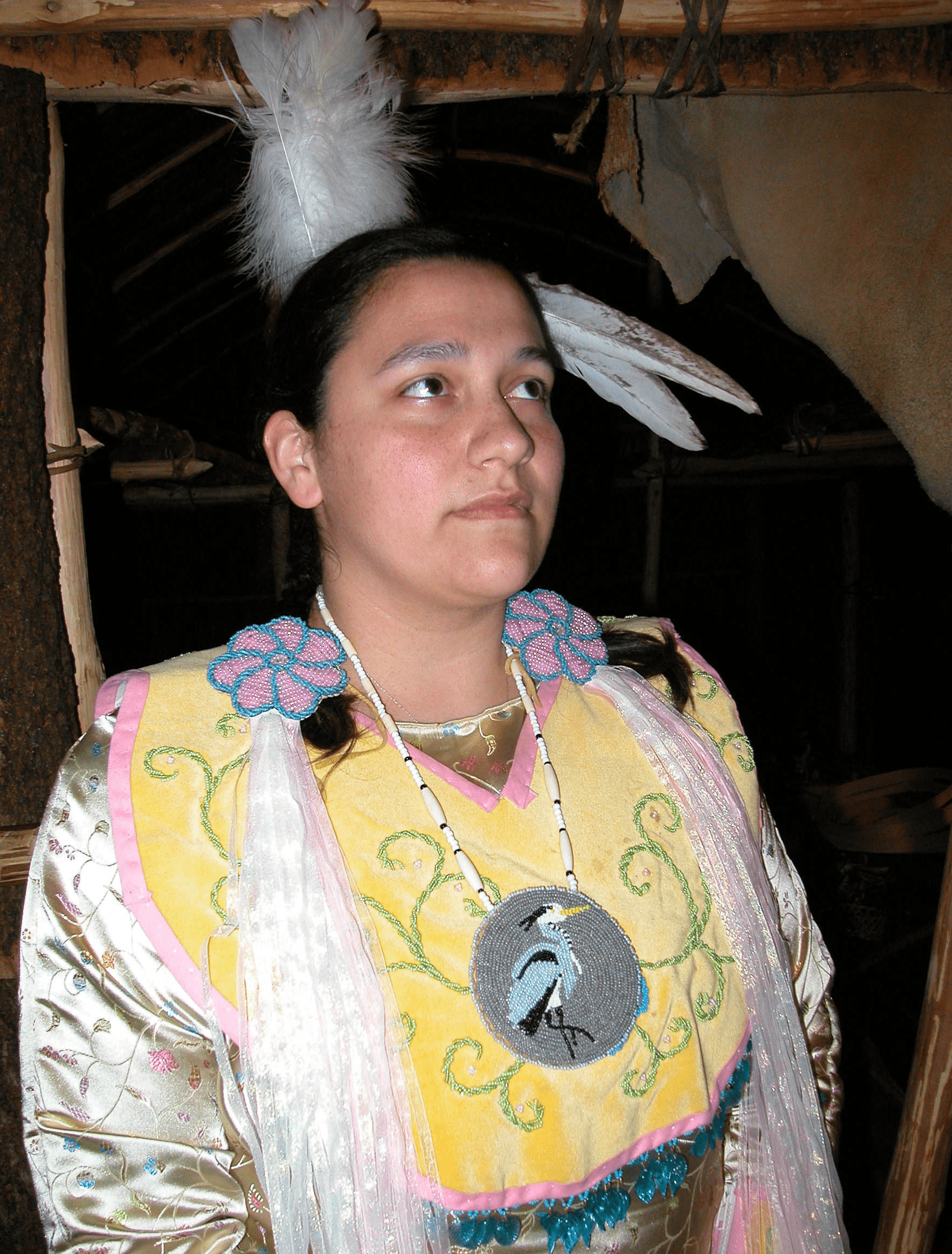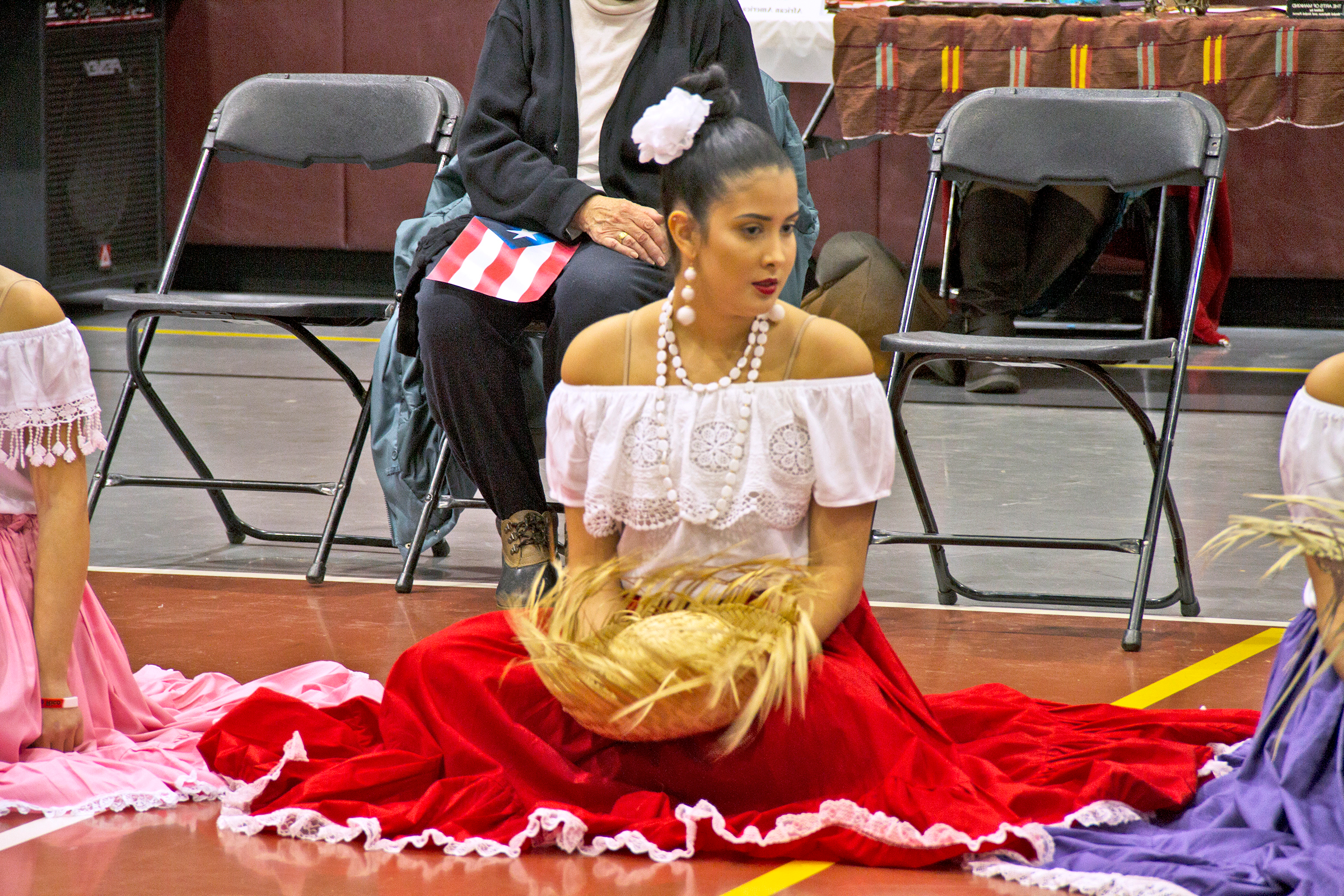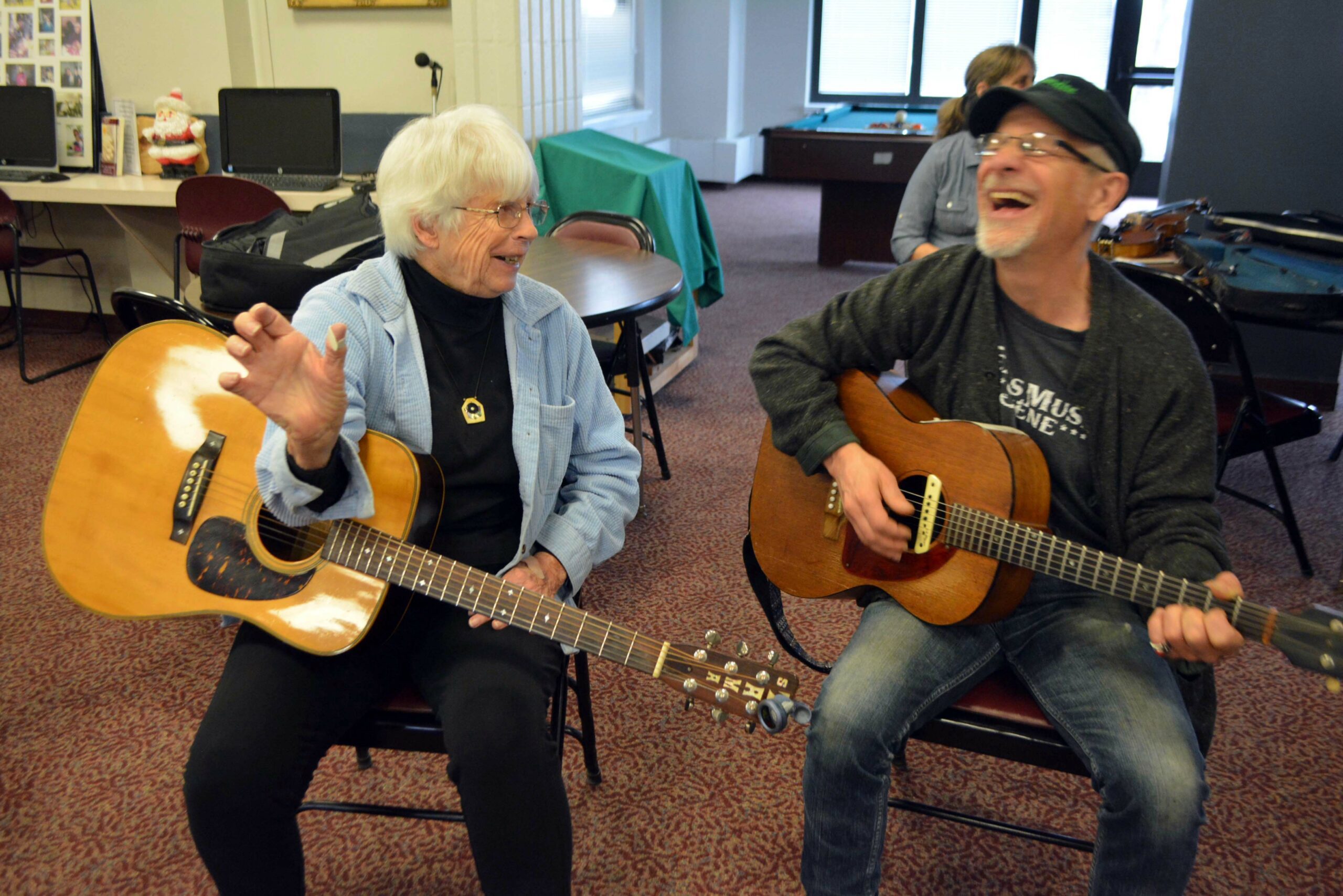FACES IN THE CROWD is
- A comprehensive self-discovery; sensitivity development; bullying and violence prevention program.
- An exceptional means for learning effective communication techniques, group dynamics, problem-solving, and conflict resolution.
- An interactive experience deftly intertwined with valuable workshop discussions
- A space that allows people of all ages and backgrounds to safely explore sensitive areas such as discrimination, name-calling, cliques, inclusion, aggression, bullying, gossip, harassment, and violence.
- Gentle, sensitive, respectful, and non-threatening
- A fun, interactive experience
- Not laden with “teaching, lessons, or lectures” that can inhibit open discussion.
- An in-depth exploration of age, gender, race, socio-economic status, class, language, disability, generational understanding, and other social areas
- An opportunity for individuals to connect their experiences and those of others.
- A unique methodology, awarded a patent in 1998, that uses special interactive tools, including mirrors, pop-up books, and multicultural masks.
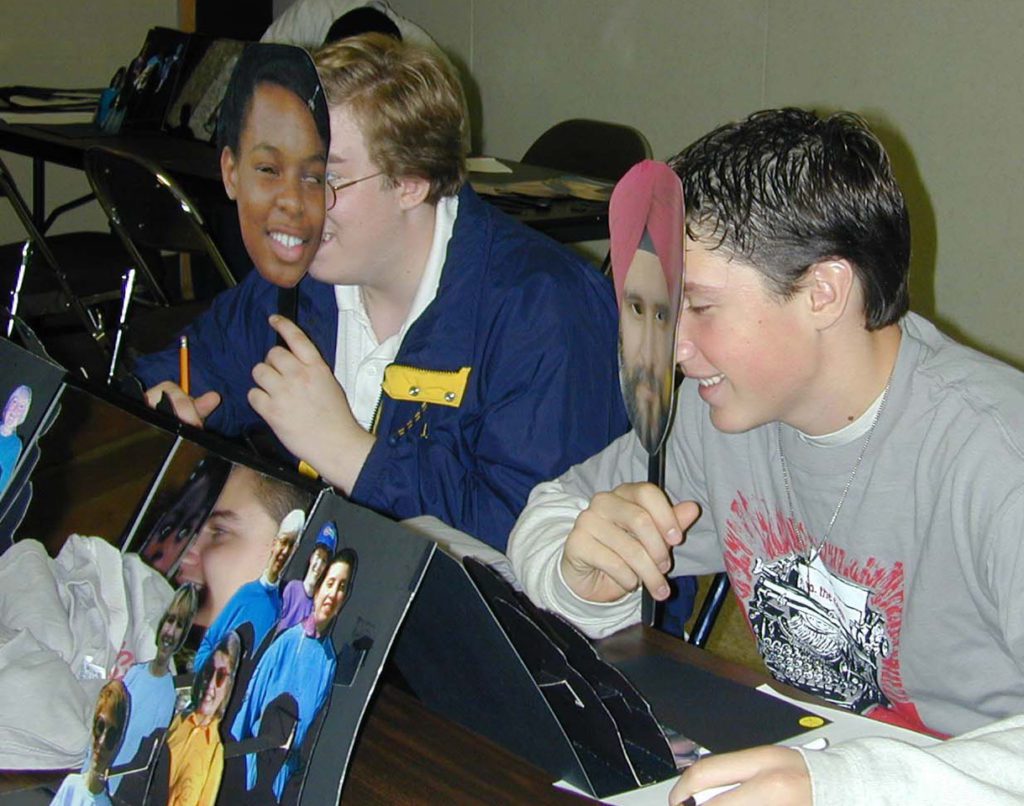
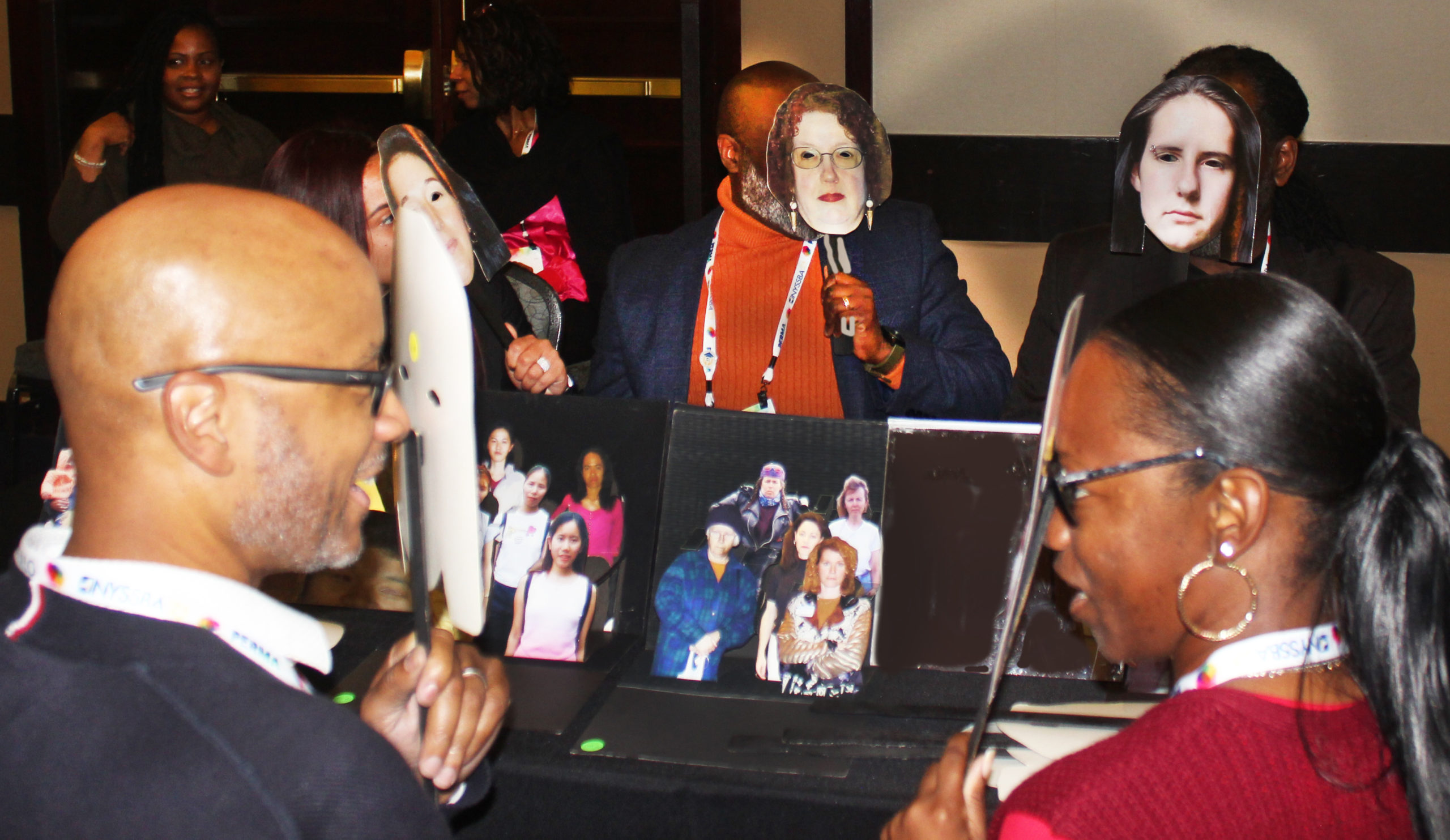
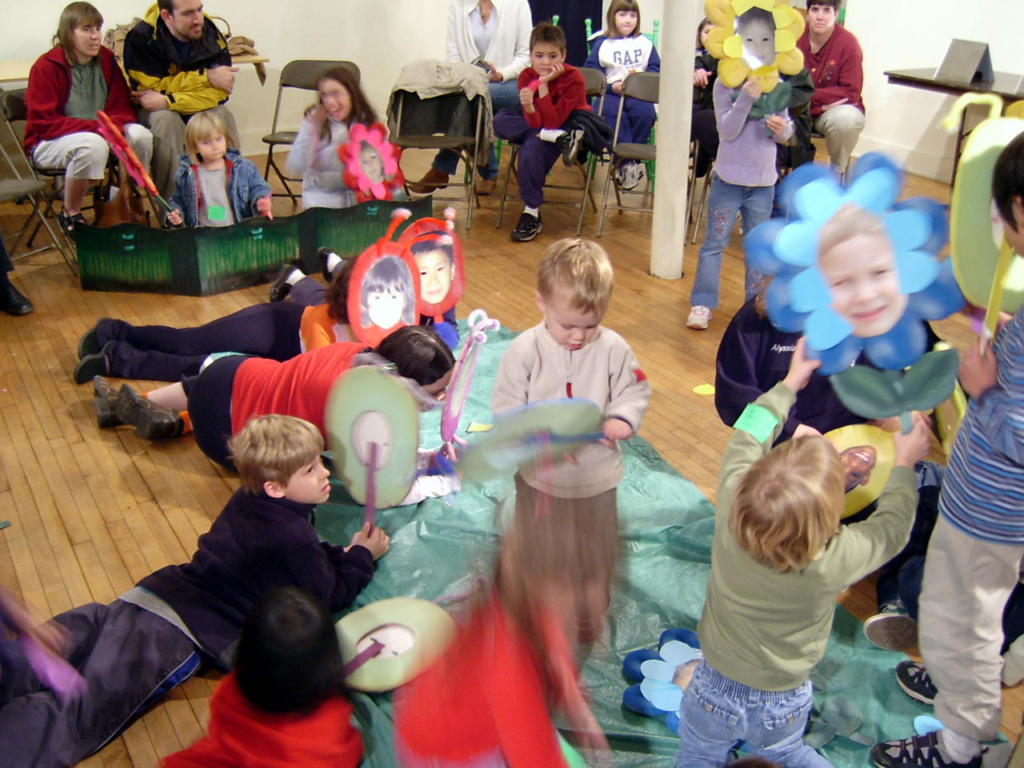
Why Choose Our Workshops?
Aimed at Promoting Understanding, Inclusion, and Empathy
Our sessions are excellent platforms where you will discover your deepest beliefs and attitudes towards others. Structured with tact and sensitivity, they encourage the following:
- Interactive exercises for individuals or groups.
- Sensitivity development towards race, age, gender, disability, and socio-economic class.
- Improvement of your social comfort zones and cultivate respect for diversity.
- Uncovering your assumptions, beliefs, and attitudes.
- Gaining insights into stigmas, labels, prejudices, and access issues.
- Enhancing your empathetic abilities for discrimination and bias reduction.
Walk away with a more profound understanding of yourself and an expanded perspective towards the world.
Helpful for Employees and Staff
Our workshops are perfect for anyone in a management role, including human resources and team leaders. As an equal opportunity employer, consider this your key to staff development. Our diversity workshops don’t just educate; they inspire a collaborative and appreciative organizational culture.
Building Harmony and Appreciation Among Youth
Our sessions are consistent with educational learning standards and encourage a sense of community and cultural appreciation in preschools, elementary schools, high schools, colleges, and youth organizations. We don’t stop at fostering cooperation and empathy; we instill real-world skills, addressing:
- Inter-Cultural Appreciation
- Creative Problem-Solving
- Communication Skills
- Violence Prevention
- Group Dynamics
We also tackle more nuanced issues such as:
- Name Calling
- Stereotypes
- Self-Esteem
- Bullying
- Cliques
- Racism
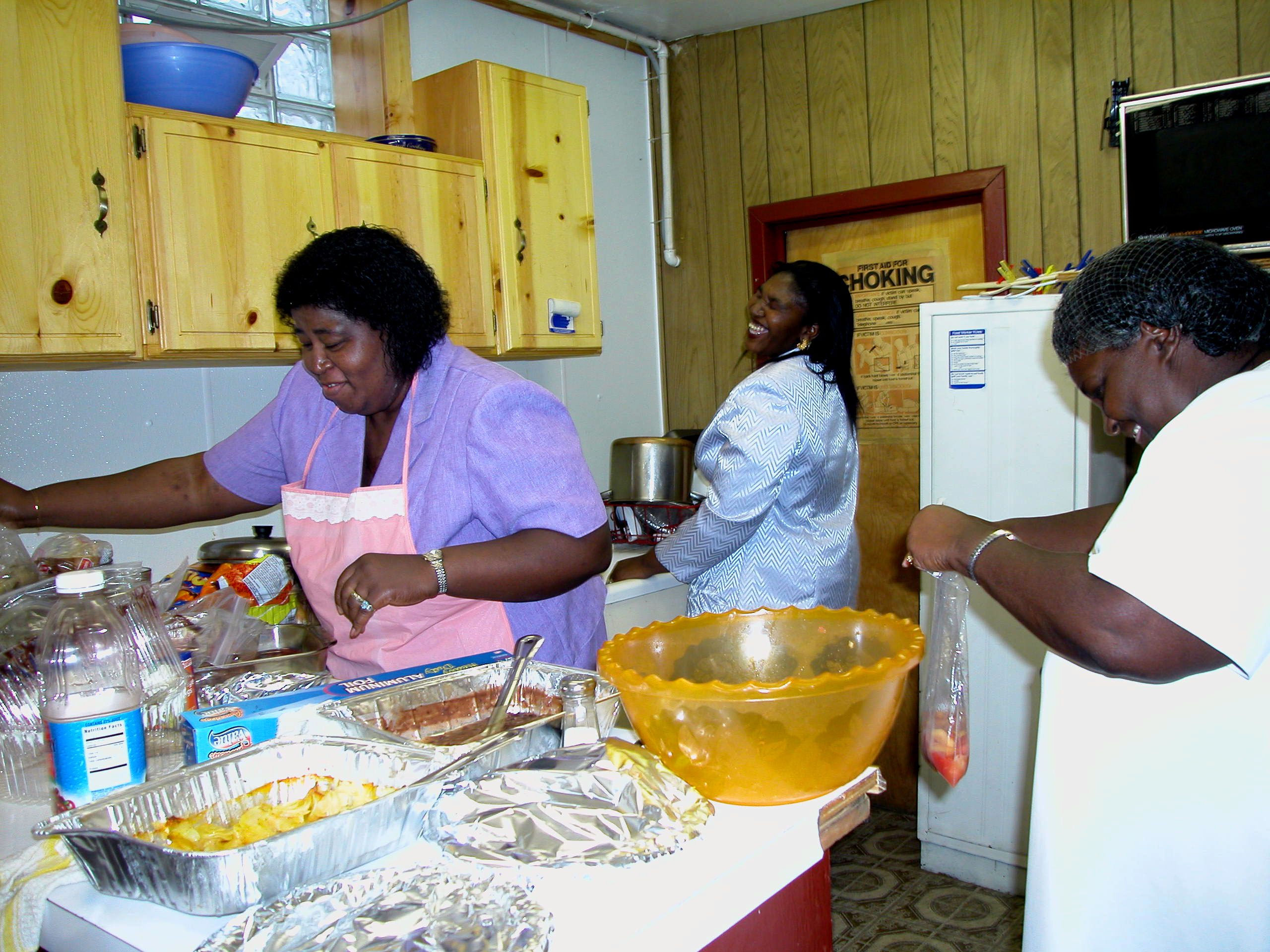

Workshops: Objectives and Activities
Immigrants and Visitors
Objectives:
- Introduce the Faces in the Crowd Workshop series.
- Develop an understanding of “the story” and how stereotypes are formed.
- Encourage introspective thinking about attitudes towards other people.
- Guide participants in their workplace role as a service provider to the diverse consumer population they serve.
Activities
Engage in role-play conversations with your partner and create unique stories based on mask identities. These conversations aim to foster recognition and understanding of hidden stereotypes based on race, appearance, media images, etc., as well as the phenomenon of “invisible persons.”
Assumptions/Comfort Zones
Objectives:
- Examine the process of forming assumptions about others.
- Understand individual and shared social comfort levels.
- Apply insights for personal and workplace interaction improvement.
Activities
We delve into our assumptions based on physical appearances and personal perspectives through mask identities and pop-up crowd activities. Participants learn the nature of assumptions and how these assumptions are impacted by individual perspectives. Applications to workplace experiences are discussed.
Social Twister
Objectives:
- Discover and understand personal decision-making processes.
- Acknowledge objective and subjective factors influencing those processes.
- Apply these insights to personal and workplace experiences.
Activities
Using multicultural cards, participants make decisions concerning people based on appearance and other qualities, diving deep into the reasons and principles behind these decisions.
Games and Roles
Objectives:
- Understand interpersonal dynamics in “game playing.”
- Understand how and why individuals get locked into roles and behaviors in their interactions.
- Learn effective communication techniques for personal and professional use.
Activities
In groups of three, each participant respectively takes on the role of victim, oppressor, or protector. Participants learn the nature of “game playing” in human interactions and how “not to play game” by “open, honest, direct, and appropriate communication.” Participants discuss how they can apply this understanding in their lives and relationships. The nature of anger as a secondary emotion that acts to disguise a primary emotion is discussed.
Age Acrobats
Objectives:
- Raise awareness of age-related prejudices.
- Increase understanding of ageism and age discrimination.
Activities
In small groups, assess (masked) people based on age to challenge existing preconceptions and discuss the validity of such decisions.
Labels, Lexicon, and Language
Objectives:
- Raise awareness of the tendency to label people based on appearances.
- Develop sensitivity to language usage and its more profound implications.
Activities
Label “pop-up” crowds and engage in word association exercises to understand how labels shape our worldviews.
Gender Genius
Objectives:
- Raise awareness of gender issues.
- Enhance sensitivity towards sex discrimination, sexual harassment, and gender bias.
Activities
Male/female pairs take opposite gender masks and role play different situations, highlighting male/female power dynamics against real-world challenges and experiences.
Adversity Ad-Lib
Objectives:
- Increase awareness of and sensitivity to mental, physical, and emotional disabilities.
- Enhance sensitivity in interactions with others with or without disabilities.
- Develop a comprehensive understanding of the challenges and stigmas faced by disabled people.
Activities
Engage in role-play activities focused on peaceful coexistence and respect for those with hearing or speech disabilities, inspiring empathy and understanding. Participants discuss the nature of being “different,” left out, laughed at, and shunned and the individual choices for how each person decides to conduct his or her life.
Secrets and Mysteries
Objectives:
- To enhance the participants’ appreciation of human diversity.
- To help participants understand new levels of human dynamics between individuals when unknown (secret) factors exist.
- To introduce the concept of stigma in relation to the hiding of one’s self in society in relation to common social secrets such as disease, AIDs, gender preference, inter-racial marriages, imprisonment, etc.
Activities
Race Course
Objectives:
- Understand how cultural expectations influence success and failure.
- Enhance a sense of justice and fairness in decision-making.
Activities
Similar to Social Twister, participants use multicultural cards to make decisions concerning people based on appearance and other qualities. Participants learn about how and why decisions about others are made and discuss the validity of these decisions and the decision–making process.
Look-A-Like/Class Act
Objectives:
- Compare objective and subjective assessments of oneself and others.
- Grasp the concept and implications of “Lookism.”
Activities
In pairs, participants “label” each other’s pop-up crowd with five to six words or phrases, then do word association exercise with the original list. Participants discuss final label list concerning the nature of the labels.
Issues of Access
Objectives:
- Review previous workshop content.
- Introduce the concept of “issues of access.”
- Empower participants to rethink their behaviors and attitudes.
Activities
Consolidate all your learning experiences in our workshop sessions and discuss the overarching concept of “issues of access,” fostering a new approach to thinking and behaving.
